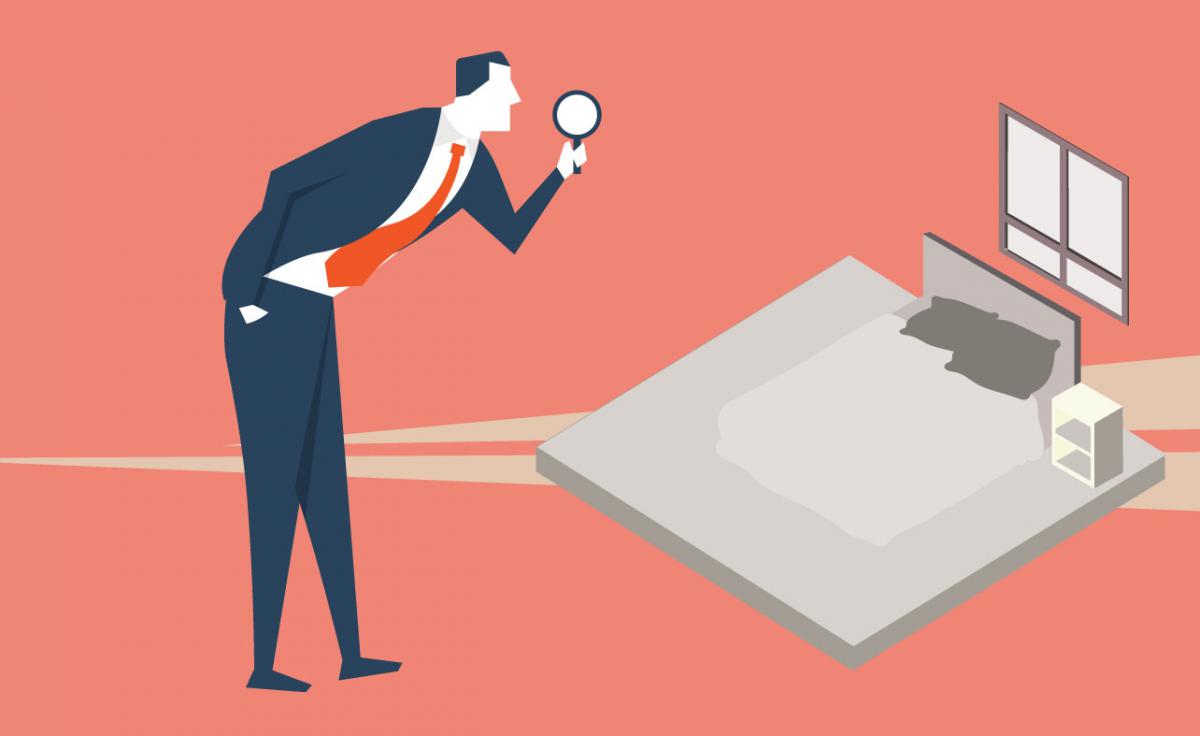
Would you let your employers monitor your every move? This is what some companies in the UK, including a high street bank and consulting firm Deloitte, are already doing by asking employees to wear a device that tracks their activity. The sociometric badges monitor employees’ health, mental state, location, workplace conversations, sleeping patterns and so on. The monitoring is constant, 24/7. According to Chris Brauer, director of innovation at Goldsmiths, the aim is to create “augmented human beings” and altogether happier employees.
We’re already monitoring and collecting this type of data but on a personal level. The Quantified Self movement, otherwise known as lifelogging, encourages users to better understand themselves by collecting data on every aspect of their daily life: from food consumption, air quality, blood oxygen levels, arousal, to bowel movements and so on. Then apps, such as Instant, compile all the data into a personalised dashboard. People have the ability to scrutinise the data, recognise trends, and potentially alter their behaviour. While certainly not my cup of tea, this form of lifelogging doesn’t seem to pose any serious threat, mainly because it’s voluntary.
But it’s different when your work starts logging your behaviour. Companies claim the use of sociometric badges is only encouraged and thus similar to lifelogging. This seems fine but the data could be used for different reasons at a later date. The problem is companies will assumedly use the data in the future to make certain decisions. After all, that is the main purpose of mined data – to examine trends and draw conclusions.
“Watching one more episode of Breaking Bad could be an economically irresponsible decision”
Because of this, it’s safe to assume that some degree of an employee’s success will be dependent on the results of that data. There’s no other reason why companies would spend huge amounts on collecting data. Therefore, the choice of opting-out, while presently harmless, could become like opting-out of economic rewards and even employment in general. If only the individuals willing to partake in sociometrics could attain advancements, regardless of their overall output, it would inevitably lead to widespread adoption. This amounts to an abuse of soft power through economic compulsion. It is encouragement with a caveat.
Considering where it could lead, the impact of sociometric badges is alarming and the potential devastating. The moment you start wearing one, nine to five employment instantaneously becomes 24/7. It obliterates the work/life balance, as work and life become interdependent. Enjoy a few after work beers? Excessive alcohol intake could be deemed reckless. An unwillingness to exercise could equally prevent success, as stress and overall health worries increase. Even the amount of sleep you get, which sociometrics track, could cause problems and before long the simple choice to watch one more episode of Breaking Bad turns into an economically irresponsible decision.
Incentivised behavioural changes of this nature are dangerous. As suggested by neuroscientists, for example, pressure to sleep could result in less sleep and the incentive to limit stress may increase stress. Those suffering with mental health issues could face discrimination, even if not explicitly, and the increasing stress to avoid such problems could exacerbate any issues. Social behaviour could change too. Monitoring conversations in the workplace could lead to disingenuous relationships: people who don’t get long may become fake friends and those who are more than friends may never get to be so. Some employees might adopt a robotic tone of voice and body language could become performance. Indeed, human interaction in general may become inauthentic.
Such widespread behavioural changes could lead to an increasingly homogenous social landscape. Imagine having to boil vegetables in perpetuity rather than gorging on Pringles, perhaps as God intended, or meditating rather than watching Eastenders. Imagine no booze, no cigarettes, no drugs, no indulgence in any other vice. Imagine attempting to achieve unblemished social interaction, regardless of who you like or dislike. Imagine the horrors of attempting to be that disgustingly perfect. Now imagine everyone else competing through economic compulsion to adopt a similar lifestyle. The brave new world, indeed, will have only disingenuous and boring people in it.
This might seem somewhat fanciful, but sociometrics are part of a wider quest in the tech and corporate worlds for human perfectibility. On the surface, this quest might seem innocuous, even progressive, but human perfectibility is dangerous. No amount of lifelogging, data mining, surveillance or indeed technology can beckon anything close to human perfectibility. It doesn’t exist. Human perfectibility is an oxymoron, as to be human is to be imperfect. The quest to achieve perfectibility, therefore, necessarily depends on repressive devices, as it attempts to counter those all too human imperfections.
The tech trend for human perfection is at best creepy and at worst authoritarian. Sociometric badges will not create happier staff, augmented employees or perfect humans. At their most efficient, they will create boring and docile workers, always afraid to challenge prevailing standards. Sociometrics attempt to shift natural behavioural patterns and repress basic human urges. They are intrusive, inhuman and damaging and calling them out isn’t regressive. Sociometric badges evidently cross an ethical line. As imperfect humans, we should work together to opt-out.